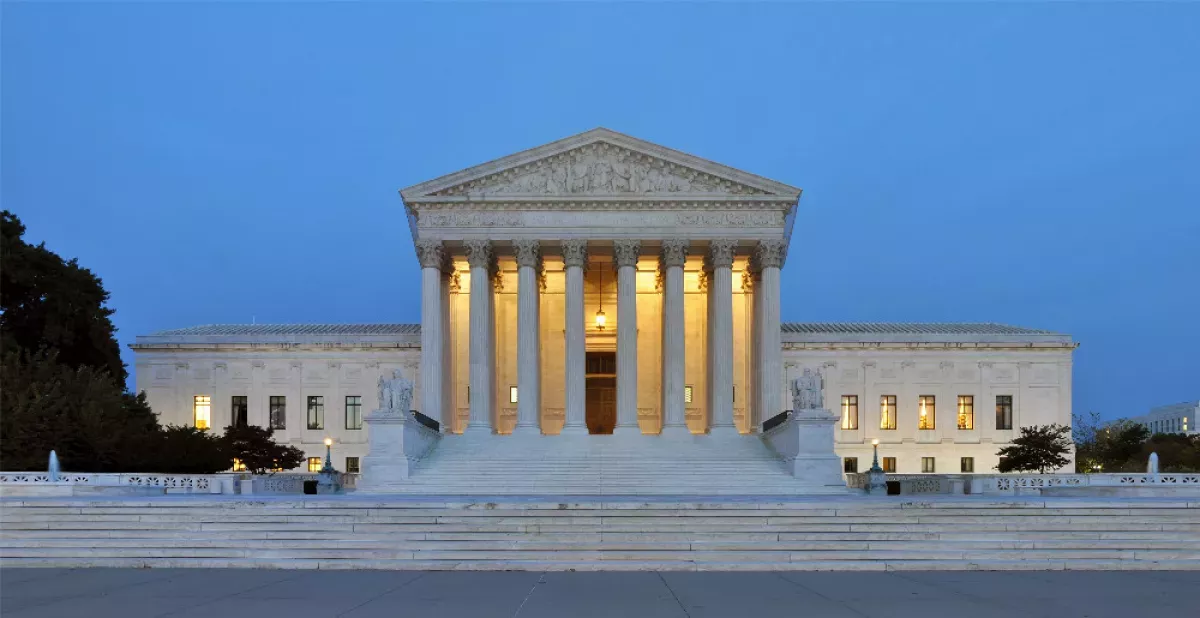A supreme court, or court of last resort, is the highest court in a legal jurisdiction's hierarchy. Its decisions are binding on all lower courts within that jurisdiction, and not subject to further review. Supreme courts primarily serve as appellate courts, hearing appeals from lower trial courts or intermediate appellate courts. In specific situations, a supreme court may also act as a court of original jurisdiction, handling cases directly.
1903: Judiciary Act 1903
The High Court of Australia was constituted by, and its first members were appointed under, the Judiciary Act in 1903.
1909: Founding of the Supreme Administrative Court in 1909
In 1909, the Supreme Administrative Court of Sweden was founded, functioning as one of the highest courts of the land.
1919: Founding of the Supreme Court of Iceland under Act No. 22/1919
The Supreme Court of Iceland was founded under Act No. 22 in 1919.
February 1920: First session of the Supreme Court of Iceland in February 1920
On February 16, 1920, the Supreme Court of Iceland held its first session.
1920: Austrian Constitution of 1920
In 1920, Austria introduced judicial review of legislative acts through the Austrian Constitution, based on a draft by Hans Kelsen.
1933: Appeals in criminal matters abolished
In 1933, the federal Parliament abolished appeals to the Judicial Committee of the Privy Council in criminal matters.
1933: Abolishment of right of appeal to the Privy Council in 1933
In 1933, the right of appeal to the Privy Council from the Supreme Court of the Irish Free State was abolished.
1945: Supreme Court of Indonesia Founded
In 1945, the Supreme Court of Indonesia was founded at the country's independence, functioning as the final court of appeal and a means to re-open closed cases.
1947: Privy Council function from 1947
From 1947 to 1950, the Privy Council had the function of apex court in Pakistan.
1949: All appeals to the Judicial Committee abolished
In 1949, all appeals to the Judicial Committee of the Privy Council were abolished. However, pending appeals could still be decided by the Judicial Committee.
January 1950: Establishment of the Supreme Court of India in January 1950
On January 28, 1950, two days after India became a republic, the Supreme Court of India was established, replacing the Judicial Committee of the Privy Council as the highest court of appeal.
1950: Federal Court of Pakistan function from 1950
From 1950 to 1956 the Federal Court of Pakistan had the function of apex court.
1956: Supreme Court as apex court in 1956
In 1956, the Supreme Court became the apex court for Pakistan following the declaration of the republic.
1958: Supreme Court Building in New Delhi in 1958
Since 1958, the Supreme Court of India has operated from the Supreme Court building in New Delhi.
1972: Constitution of Bangladesh Adopted
In 1972, the Constitution of Bangladesh was adopted, leading to the establishment of the Supreme Court of Bangladesh as outlined in Part VI, Chapter I (Article 94).
1972: Creation of the Supreme Court of Sri Lanka in 1972
In 1972, the Supreme Court of Sri Lanka was created following the adoption of a new Constitution.
1973: Creation of the Federal Supreme Court of the United Arab Emirates in 1973
In 1973, the Federal Supreme Court of the United Arab Emirates was created after the adoption of the Constitution.
1976: Agreement between Nauru and Australia in 1976
In 1976, an agreement between Nauru and Australia provided for appeals from the Supreme Court of Nauru to the High Court of Australia in criminal and civil cases, excluding constitutional cases.
1979: High Court of Australia Act 1979
In 1979, the High Court of Australia Act was established, influencing the court's operations along with sections 71 to 75 of the Constitution and the Judiciary Act.
1980: Name change of the High Court of New Zealand until 1980
Until 1980, the High Court of New Zealand was known as the Supreme Court.
1987: 1987 Philippine Constitution grants judicial review to the Supreme Court
In 1987, the Philippine Constitution explicitly granted the Supreme Court the power of judicial review over laws and executive actions.
1994: Supreme Court of Appeal (SCA) Created
In 1994, the Supreme Court of Appeal (SCA) was created in South Africa, replacing the Appellate Division of the Supreme Court as the highest court of appeal in non-constitutional matters.
1997: Transfer of Sovereignty in Hong Kong
In 1997, Hong Kong experienced a transfer of sovereignty, ending its colonial period and leading to the establishment of the Court of Final Appeal, which vested the power of final adjudication.
1998: Scotland Act 1998
Devolution issues under the Scotland Act 1998 were transferred to the new Supreme Court by the Constitutional Reform Act.
1999: Right of Abode Issue in 1999
In 1999, the right of abode issue in Hong Kong became controversial, raising concerns about judicial independence and the power of interpretation of the Basic Law.
2001: Constitutional Amendment Passed
In 2001, a constitutional amendment was passed to establish the Constitutional Court of Indonesia.
2003: Constitutional Court Established
In 2003, the Constitutional Court of Indonesia was established, tasked with reviewing bills and government actions for constitutionality.
2003: Supreme Court Act (2003)
In 2003, the Supreme Court Act was passed in New Zealand, abolishing the right of appeal to the Privy Council.
2003: Supreme Military Court until 2003
Until 2003, Portugal had a separate Supreme Military Court for military jurisdiction matters.
2004: Establishment of the Supreme Court of New Zealand in 2004
In early 2004, the new Supreme Court of New Zealand was officially established, commencing operations in July.
2005: Constitutional Reform Act 2005
The Constitutional Reform Act was established in 2005 with effect from October 1, 2009.
2007: Constitutional amendment of 2007
Since a constitutional amendment of 2007, the French Constitution states that the High Court is composed of all members of both Houses of Parliament.
October 2009: Establishment of the Supreme Court of the United Kingdom in October 2009
On October 1, 2009, the Supreme Court of the United Kingdom was established by the Constitutional Reform Act 2005, replacing the judicial functions of the House of Lords.
2009: Supreme Court setup in 2009
In 2009, the Supreme Court was set up in the UK, replacing the House of Lords as the ultimate court.
August 2013: Constitutional Court becomes single apex court
In August 2013, the Constitution of South Africa was amended to make the Constitutional Court the country's single apex court, superior to the SCA in all matters.
2015: Teina Pora case in 2015
The case of Teina Pora in 2015 was the final case from New Zealand to the Privy Council, which ruled in his favor.
2018: Establishment of Landsréttur in 2018
In 2018, the Icelandic court system was transformed from a two-level system to a three-level system with the establishment of Landsréttur.
2022: Council of Grand Justices was a previous form of Constitutional review organ until 2022
Until 2022, the Council of Grand Justices was a previous form of Constitutional review organ in Taiwan.
2023: High Court as of 2023
As of 2023, the High Court (Haute Cour) in France has never been convened.
February 2026: Supreme Court of Bangladesh composition in February 2026
As of February 2026, the Appellate Division of the Supreme Court of Bangladesh consists of 6 judges, and the High Court Division has 103 judges.
Mentioned in this timeline
India officially the Republic of India is a South Asian...
New Zealand is an island country in the southwestern Pacific...
Hong Kong is a densely populated special administrative region of...
Africa is the second-largest and second-most populous continent home to...
Australia officially the Commonwealth of Australia encompasses the Australian mainland...
France officially the French Republic is primarily located in Western...
Trending

12 minutes ago Zurich Insurance to Acquire Beazley in a Landmark $11 Billion Deal

3 hours ago Warriors face play-in, Curry's injury raises concerns, Kerr lowers expectations, Moody's role?

1 hour ago Michael Jordan's NASCAR impact: Antitrust lawsuit, 23XI Racing, and historic career.

3 hours ago Stephen A. Smith criticizes Draymond Green's comments on Nico Harrison as unfair.

3 hours ago Kris Dunn Recovered From Injury, Briefly Exited Game After Elbow Contact

3 hours ago Al Horford's Role Shifts: Back to Starting Lineup, Then Bench, Mindset Revealed.
Popular

Jesse Jackson is an American civil rights activist politician and...

Hillary Diane Rodham Clinton is a prominent American politician lawyer...

Jim Carrey is a Canadian-American actor and comedian celebrated for...

XXXTentacion born Jahseh Dwayne Ricardo Onfroy was a controversial yet...

Michael Joseph Jackson the King of Pop was a highly...

Kashyap Pramod Patel is an American lawyer who became the...
